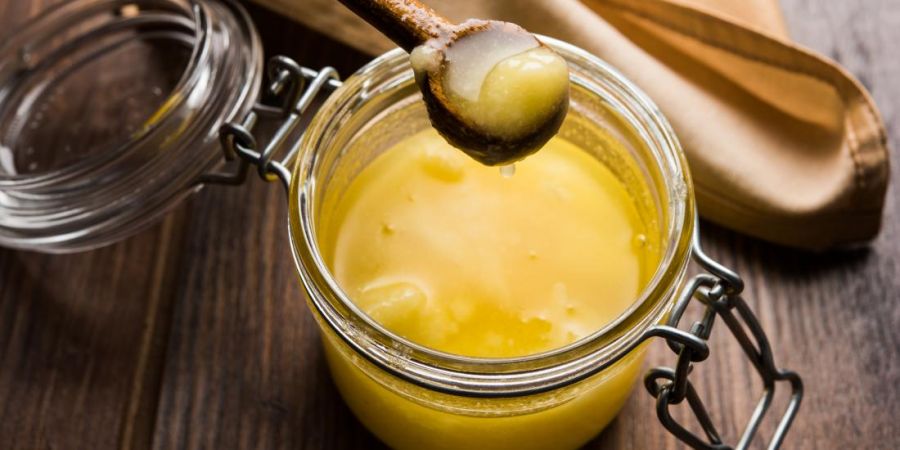

In the event that you are on a weight reduction venture, you could have heard from a many individuals to take out ghee from your eating regimen. Since ghee is a wellspring of fats, the vast majority abstain from having it when they are intending to get thinner. However, do you truly have to discard this solid wellspring of fat to get in shape?
.
.
Ghee safeguards the body from numerous infections, sustains and greases up the joints and works on the retention of fat-solvent supplements. Ghee is 99.9 percent fat and 1 percent dampness for certain fat-solvent nutrients and burned milk protein divisions. As it is ready with immersed fats, that is margarine, it doesn't get ruined even at room temperature.
You can make your veggies or dal in 1-2 tsp ghee, or spread a couple of drops of ghee on your chapati. This is useful for diabetes patients, as ghee diminishes the glycemic file of chapatis. Assuming you are managing the issue of clogging, blend one spoon of ghee in warm milk and have it around evening time.
.
.
One spoon of ghee is the suggested day to day consumption that you can undoubtedly take while holding back nothing. At the point when you have arrived at your ideal weight and wish to keep up with it, the ghee admission can expand up to 2 teaspoons, yet not beyond what that, as an overabundance of it can cause weight gain.
As ghee is stacked with omega 3 fats (DHA) and omega 6 (CLA), it can help your body during weight reduction. These sound fats are said to increment lean weight while lessening abundance fat. It is additionally said that ghee furnishes your body with additional energy by preparing and consuming fat cells.
One teaspoon of ghee contains:
Carbs
Since ghee is totally unadulterated fat, it contains no starches.
Fats
Like most cooking oils, ghee is extremely near 100 percent fat. One tablespoon has 15 grams of fat, 9 grams of which are immersed fat. The excess fat substance is split between around 5 grams of better monounsaturated fat and short of what one gram of polyunsaturated fat.
Ghee is more focused than normal margarine, so it contains more calories and more fat (counting immersed fat). Like any fat, ghee ought to be utilized as a highlight to upgrade different food sources and not as the heft of the dinner.
Protein
Ghee might contain follow measures of protein that is extra if the milk solids (whey) aren't totally taken out in the explanation cycle.
Nutrients and Minerals
The micronutrient content of ghee can shift by brand and the eating regimen of the cows that provided its milk. As a general rule, a one-tablespoon serving contains around 8% of the suggested day to day consumption (RDI) of vitamin A, 2% of vitamin E, and 1% of vitamin K.
You would need to eat more fat than is prescribed to help enough of these supplements through ghee. So it's ideal to involve a modest quantity of ghee in cooking vegetables and different food sources with fat-dissolvable supplements so your body can more readily retain the supplements.
